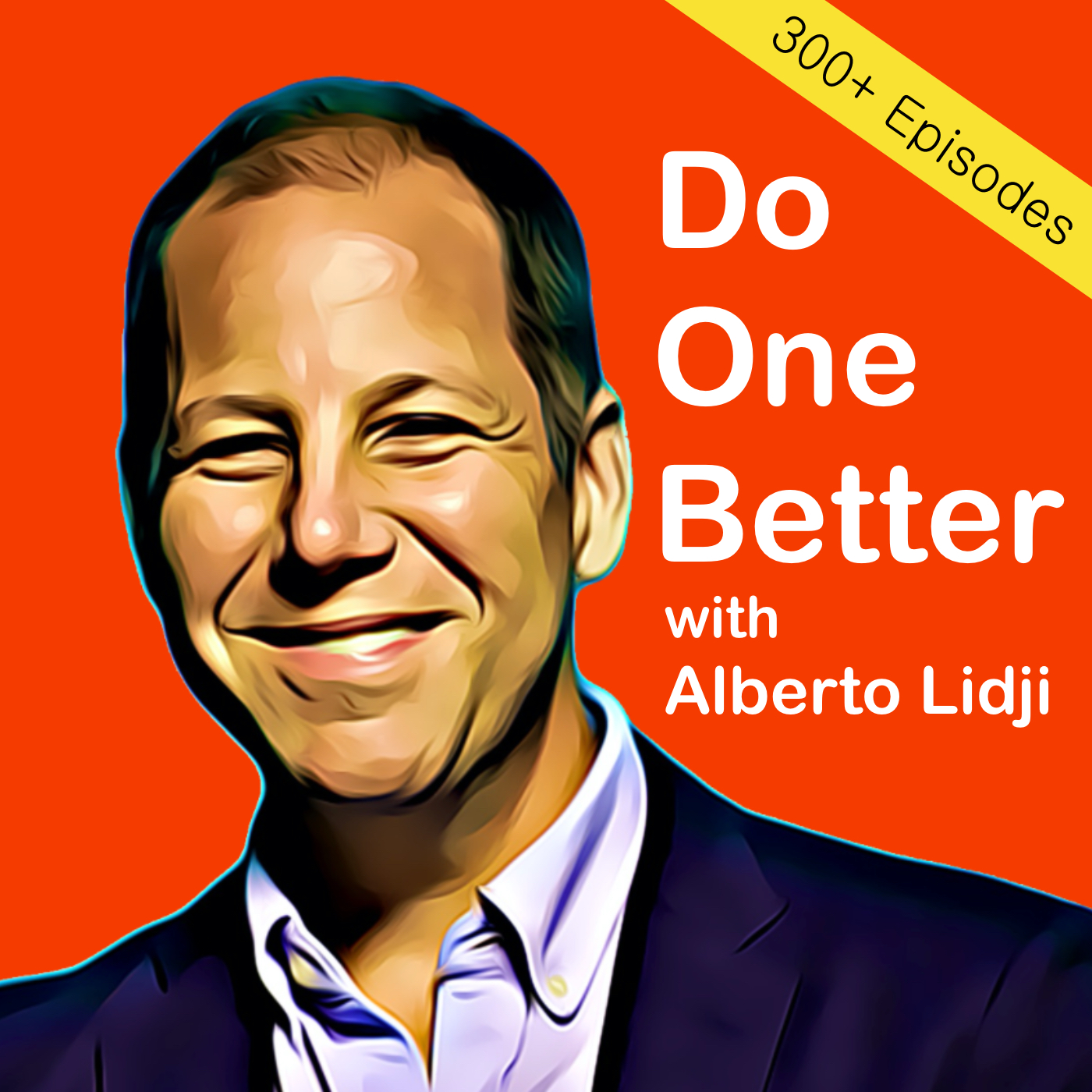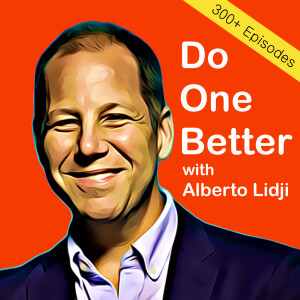

Listen to 300+ interviews on philanthropy, sustainability and social entrepreneurship. Guests include Paul Polman, David Lynch, Siya Kolisi, Cherie Blair, Chiwetel Ejiofor, Bob Moritz, David Miliband and Julia Gillard. Hosted by Alberto Lidji, Visiting Professor at Strathclyde Business School and ex-Global CEO of the Novak Djokovic Foundation. Visit Lidji.org for more information.
Episodes

Monday Jun 10, 2019
Monday Jun 10, 2019
Executive Director of the Bernard van Leer Foundation, Michael Feigelson, joins Alberto Lidji to discuss political engagement, diversity of leadership and support for Early Childhood Development.
Michael speaks passionately about engaging with global policymakers and diverse stakeholders in support of Early Childhood Development. We hear of Michael's early days as a consultant at McKinsey & Co, his non-profit work in Mexico and his subsequent rise to lead one of the world’s earliest and most effective advocates of Early Childhood Development -- the Bernard van Leer Foundation has been active in this field since the 1960s.
When asked about the tension between scalability and high quality in Early Childhood Development programs, he quickly points out that this tension isn’t confined to the world of Early Childhood Development exclusively; it is a general theme in life, in business, and in philanthropy.
Michael goes on to talk of their high scale work in Brazil, in conjunction with government and with the Maria Cecilia Souto Vidigal Foundation.
He is candid that along with scale there certainly are many quality issues being identified, but this should not prevent one from aiming to scale. Michael’s view is to go fast and go for scale, and work for quality in the meantime. Don’t let perfect be the enemy of the good – “the reality of scaling anything up is that it’s messy, and you’re going to have problems, and it’s going to fail in different parts.”
Michael notes that when driving forward programs at such scale and dealing with governments, you need to keep in mind that political contexts are fluid, and you need to get your program to a point -- in your window of opportunity -- where it’s irreversible and that means you need to get it big enough, so there’s a large enough number of people and constituents, from parents, to policymakers, to politicians who are invested in it. From “a political standpoint, pace matters, speed matters”.
Two tips from Michael if you’re looking to engage with governments:
(1) Government is a huge entity in any country with thousands of people. There’s a tendency to think about government as a sort of homogenous entity but like any institution of that size it’s not at all. It’s filled up with people, thousands of different types of people with different interests. In Michael’s experience there are always people inside government who deeply want to do something for babies and toddlers. And a lot of the work is just finding those people who are committed and passionate about Early Childhood Development -- it’s not about creating the leadership; it’s actually already there but just needs to be supported and augmented.
(2) Ensure there’s a diversity of leadership. You don’t want the program to be tied to a single political party; you wanted it to be tied to all of the political parties. You don’t want it to be just the national government; you want it to be the state an local government, too. You don’t just want it to be the public sector; you want it to be the private sector and civil society as well. So, you’re really trying to create a broad group of leaders who will all be advocating for Early Childhood Development in their own way.
As far as getting ministries to work with each other, Michael notes there is this insistence on having all the ministries talking to each other, and policies across all the sectors and somebody co-ordinating everything. Yes, once in a while this happens but more often than not, what he looks for is a good anchoring point to start with – either for a platform that already exists, or for a ministry that can act as the anchor, or for the top authority in the country to take the lead (ie the prime minister) and that’s the best way to get co-ordination.
The latter part of the conversation focuses on their Urban95 initiative, which aims to look at cities and urban planning from the vantage point of the height of a child – 95cm. If you could experience a city from 95cm, what would you change? Urban95 is active in more than 10 cities globally.
An interesting observation is that air quality came up as a key topic. About 93% of the world’s kids breathe air that is under the WHO standard today. And the exposure to polluted air doesn’t just have an impact on a child’s health today but also on their lung growth and brain function in the long-term. Moreover, the air is dirtier at 95cm (as opposed to an adult’s normal height); and to add to that babies and toddlers breathe about four times as frequently because they have shorter breaths than adults, so they’re taking in more dirty air than adults and they can’t filter it as well.
The key takeaway from Michael: Set goals that are far too big for you to reasonably achieve by yourself, because that’s what’s needed in the world and it forces you into a collaborative mode.
For additional links, guest bios and resources, visit Lidji.org -- please subscribe to this podcast and recommend it to others if you find it enjoyable. Thank you.
No comments yet. Be the first to say something!